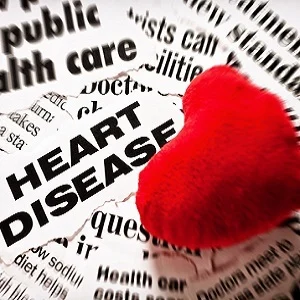Many physicians are not telling cancer patients about the cardiotoxicity risks of treatments and may not be fully aware of the dangers themselves. A new study reveals an urgent need to look after the hearts of these patients. The research is presented today at EuroHeartCare 2019.
"There was no mention that it could lead to heart disease. Would have been nice to know."
The growing number of cancer survivors and increasing number of over-65s needing chronic cancer therapy mean that the need for cardio-oncology services is rising. Heart failure caused by cancer therapy can occur up to 20 years after treatment. In 2012 over 32 million people worldwide were living with cancer.2
"Depending on the type of chemotherapy and radiotherapy, between 1% and 25% cancer patients may develop heart failure due to cancer treatment," said study author Professor Robyn Clark, of Flinders University, Adelaide, Australia. "Risk also depends on cardiovascular risk factors such as smoking and obesity. Better monitoring of the heart and intervention before, during and after treatment can prevent or lessen the impact of this cardiotoxicity."
The researchers reviewed medical records of 46 randomly selected cancer patients with cardiotoxicity who attended one of three hospitals between 1979 and 2015. Just 11% were referred to a cardiologist before chemotherapy and less than half (48%) were referred to a heart failure clinic after cancer treatment. Almost 40% were overweight or obese, 41% were current or ex-smokers, 24% were regular consumers of alcohol, 48% had hypertension, and 26% had diabetes.
In a subset of patients, practice was compared before (1994-2011) and after (2012-2015) the 2012 European Society for Medical Oncology guidelines were published.3 Referral to a cardiologist before chemotherapy rose from 0 to 23% and conducting a baseline echocardiogram of the heart increased from 57% to 77%.
Eleven patients were interviewed, of whom seven were involved in the medical records analysis. No patient could articulate their heart health needs. More than half said they started eating healthily after their cancer diagnosis yet appeared to lack understanding of a balanced diet.
The ESC published recommendations in 20164 and in 2018 launched the ESC Council of Cardio-Oncology to promote the prevention, early diagnosis, and management of cancer therapy-related cardiovascular diseases. Patients should be told the risks to their heart before starting cancer therapy, given help to quit smoking, eat healthily, exercise, and control their weight, and told to report signs and symptoms of cardiovascular disease.
Cardiotoxicity is detected using electrocardiogram (ECG), cardiac imaging, and biomarkers. The frequency of assessment depends on a number of factors - for example, evaluation for coronary artery disease, ischaemia and vascular disease is recommended in patients with a history of mediastinal radiation starting five years post-treatment and then at least every five years thereafter, even if they have no symptoms.
Angiotensin-converting enzyme (ACE) inhibitors or beta-blockers may be given to prevent or treat heart failure. And cancer therapy can be modified - for example reducing the dose or having a gap between two agents which raise heart failure risk when taken together (e.g. anthracyclines and trastuzumab).
"Monitoring the heart throughout the cancer journey can ensure it is protected," said Professor Clark. "Cardiotoxicity can occur even in people without cardiovascular risk factors since drugs like anthracyclines and trastuzumab are toxic to the heart, so it is an innocent bystander."
"For cancer patients who do develop heart failure, there are clinics that will improve their quality of life but our study shows many are not referred," she added. "Telephone calls to support and monitor those with cancer and heart failure would reduce the burden of hospital appointments, which patients said was a priority."
Source: European Society of Cardiology
Image Credit: iStock
Latest Articles
heart failure, cancer patients, cardiotoxicity
A new study reveals an urgent need to look after the hearts of cancer patients. The research was presented at EuroHeartCare 2019.










